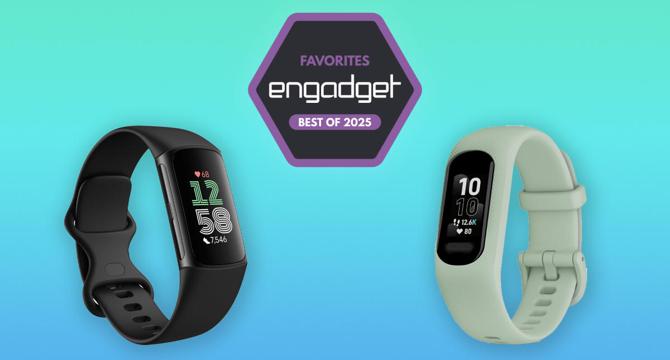Engadget
5d
254

Image Credit: Engadget
The best fitness trackers for 2025
- Fitness trackers are dedicated to monitoring exercise and provide accurate workout and activity tracking, with features like stress and sleep tracking being included in some models.
- They offer better battery life, durability, and price affordability compared to smartwatches, making them a viable option for those focused on fitness.
- Fitness trackers excel in monitoring activity well without the distractions of extra features, providing a less conspicuous option for users.
- Battery life on fitness trackers ranges from five to seven days, offering all-day and all-night use with sleep tracking enabled, syncing seamlessly with smartphones and fitness apps.
- Smartwatches are recommended if you need more functionality beyond fitness tracking, with features like on-watch apps, alerts, smart home control, and compatibility with Android and iPhone.
- Dedicated running watches offer more in-depth cardio analytics and real-time pace data for serious training purposes, whereas fitness trackers focus more on activity monitoring.
- The Fitbit Inspire 3 is highlighted for its essential tracking features, sleek design, color touch display, connected GPS, smartphone alerts, and multi-day battery life.
- Fitness tracker batteries typically last between five to seven days, with more advanced models requiring recharging after one to three days depending on usage.
- Using features like GPS or music streaming can drain the battery faster, and conserving their usage can help extend the battery life of fitness trackers.
- For more detailed information, the original article is available at https://www.engadget.com/wearables/best-fitness-trackers-133053484.html?src=rss
Read Full Article
15 Likes
For uninterrupted reading, download the app